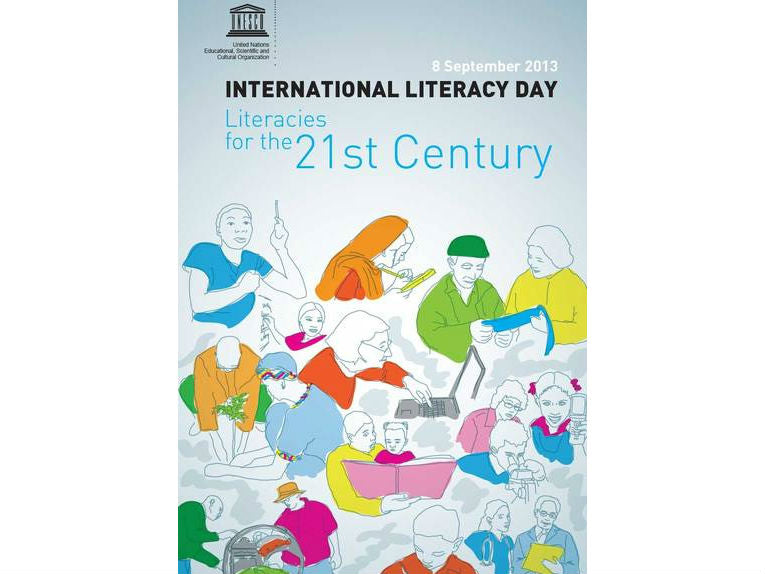Since 1966, which seems a little late, the UN and its offspring, UNESCO, have collaborated in encouraging the spread of literacy among individuals, communities and societies. Adult learning is naturally a pre-occupation, except where undeveloped tribal peoples and their ilk need special educational treatment.
There are still 775 million adults who lack the minimum skills needed for both reading and writing, of which two-thirds are women. Only 60.7 million children are classed as out-of-school and therefore at risk of illiteracy. The regions particularly concerned are south and western Asia and sub-Saharan Africa and Arab States. Irina Bokova, who is UNESCO's Director-General sets the tone in her approach to 2013, "Literacy is much more than an educational priority - it is the ultimate investment in the future and the first step towards all the new forms of literacy required in the twenty-first century. We wish to see a century where every child is able to read and to use this skill to gain autonomy."
The weapons used against literacy are of course, severe poverty and prejudice against women. Lined against such problems have been UN themes that address and stress those links between "Literacy and Health" and "Literacy and Empowerment," with the most recent being "Literacy and Peace."
The latest initiative is meant to stress that people who can communicate outside their own small circles can interest others in achieving solutions to problems. Peace achieved without the old solution of the use of force. Today's theme is, "Literacies for the 21st century." The hope is to involve technologies and achieve development more efficiently, including such headline-makers as reductions in child mortality and achieving better developmental opportunities for a country.
The Writers for Literacy Initiative is a particularly attractive way of raising public awareness, with a multi-lingually glittering display of literati in Margaret Atwood, Paul Auster, Philippe Claudel, Paulo Coelho, Philippe Delerm, Fatou Diome, Chahdortt Djavann, Nadine Gordimer, Amitav Ghosh, Marc Levy, Alberto Manguel, Anna Moi, Scott Momaday, Toni Morrison, Erik Orsenna, Gisele Pineau, El Tayeb Salih, Francisco Jose Sionil, Wole Soyinka, Amy Tan, Miklà ³s Vámos, Abdourahman Waberi, Wei Wei and Banana Yoshimoto. It is to be hoped that millions more will collaborate in donating books, becoming mentors and otherwise increasing awareness of a problem that few fully and genuinely appreciate on an everyday basis.
It's worthwhile looking at the most literate nations in order to get a grip on real lives in this computer-literate age we inhabit, ignoring the 10 countries who stand out as having 75% of the illiterate. Many nations claim 100% literacy, but we all know that 99% is barely possible, even with huge resources in schools and colleges. Illiteracy is something that is hidden and should be exposed, as gently as possible, but exposed nevertheless so we can all appreciate the great literatures. Non-fiction or fiction, e-book or newspaper "rag," all are needed and to be appreciated for getting across a message.
Far from letting them off the hook, the 10 countries with most illiteracy cannot be hidden, despite any excuses! They are, surprisingly:
India, China, Pakistan, Bangladesh, Nigeria, Ethiopia, Egypt, Brazil, Indonesia, and the Democratic Republic of the Congo.










